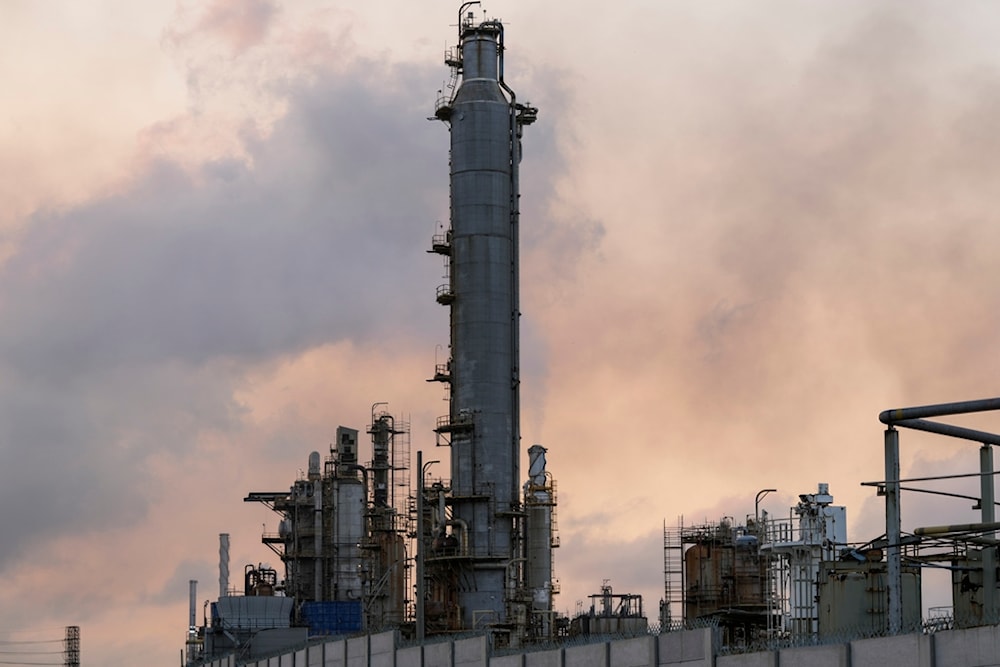US unlikely to reinstate Venezuela oil sanctions: WSJ
The Biden administration is anticipated to prolong a waiver on US sanctions targeting Venezuela's oil sector until July 28, coinciding with Venezuela's scheduled elections.
-

Units of El Palito refinery near Puerto Cabello, Venezuela, Monday, Jan. 29, 2024 (AP Photo/Matias Delacroix)
The Wall Street Journal reported on Friday, citing internal sources, that the White House is not expected to reinstate sanctions on Venezuela's oil sector in April. This occurs as the government of Venezuela cracks down on opposition members who have been found to conspire with the CIA to remove Maduro.
In February, the country's Prosecutor General Tarek William Saab announced that security forces have successfully foiled preparations for five terrorist attacks and conspiracies, resulting in the detention of 27 individuals. One of the terrorist operations involved assassinating Maduro himself. He accused both the CIA and the Colombian army of being involved in the plot and said that agreements with the opposition over the country's 2024 presidential election were "mortally wounded" as a result of the plots.
According to the WSJ report, the US is concerned that reimposing sanctions on Venezuela's oil sector, as per the Trump-era policies, may lead to higher gasoline prices for US consumers and further contribute to increased migration from Venezuela to the US amid the ongoing border crisis.
The report further indicated that US officials are also apprehensive about the possibility that limiting Western investments in Venezuela could result in a tightening of global energy supplies. This scenario may create an opportunity for Chinese investment to fill the void in Venezuela's energy sector.
The Biden administration is anticipated to prolong a waiver on US sanctions targeting Venezuela's oil sector until July 28, coinciding with Venezuela's scheduled elections.
Read more: Venezuela increasingly becoming immune to US sanctions
In October 2023, the US Treasury Department issued General License 44 to permit transactions related to Venezuela's oil and gas sector for a duration of six months. However, the Biden administration has consistently cautioned that it will allow the license to lapse on April 18 if it determines that Maduro is obstructing free and fair elections.
On March 16, Maduro was officially nominated by the country's ruling party as its election candidate.
In a statement, he expressed that he accepts the nomination "Given the decision taken by the people in the territory and that has ratified this V Extraordinary Congress of the PSUV and this IV Extraordinary Congress of the JPSUV."
For his part, Diosdado Cabello stated that Maduro Moros was elected president of the United Socialist Party of Venezuela (PSUV) following 317.187 grassroots assemblies in which 4,240,032 PSUV militants nominated the present president.
During the event, Maduro expressed that he has traveled long and far in the country and found "patriotic people, full of heroism, but above all, full of hope."
Touching on the current defamation campaigns, destabilization, and pressure "against the Bolivarian Revolution," Maduro expressed that there would only be one fate for the nation: "the popular victory on July 28, 2024."
Read more: Maduro re-condemns imperialist plan to destabilize Venezuela

 3 Min Read
3 Min Read








